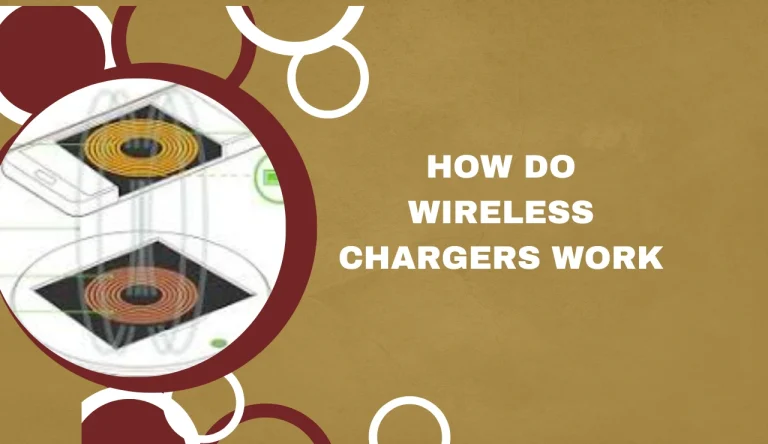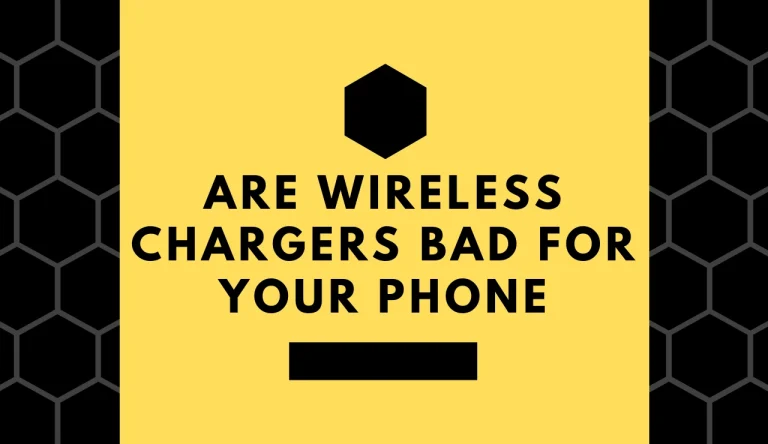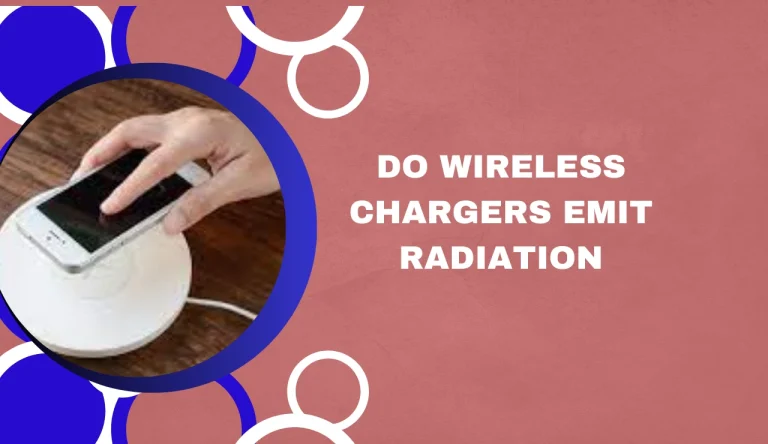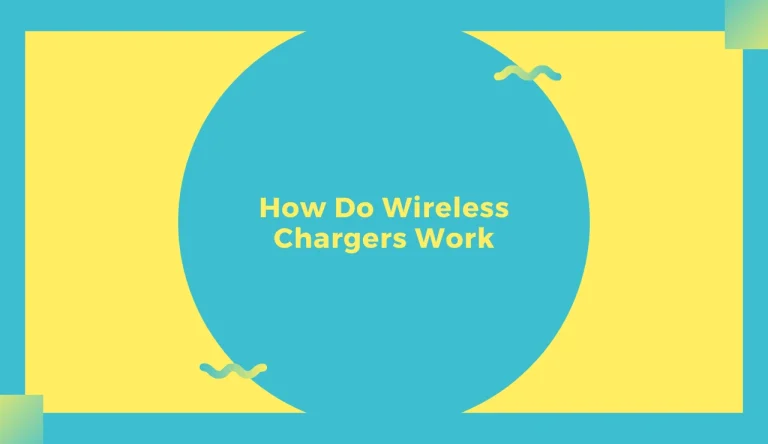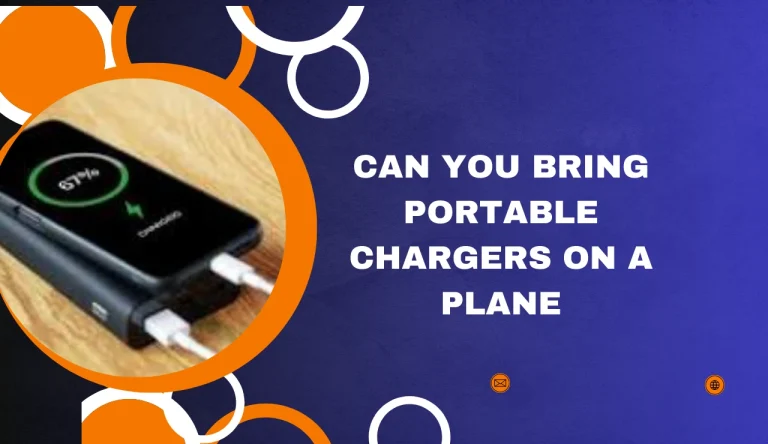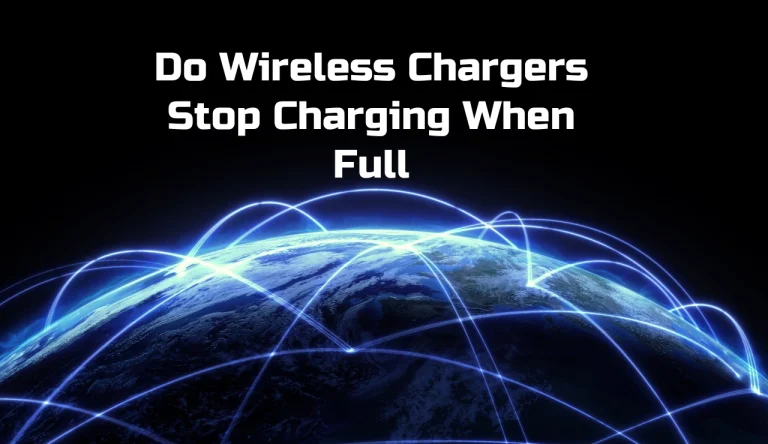Do Wireless Chargers Cause Cancer
Do wireless chargers cause cancer? This question has become a topic of concern and debate in recent years. As technology continues to advance, wireless charging has become increasingly popular, allowing us to conveniently charge our devices without the hassle of cables. However, some individuals worry that this convenience may come at a cost to our health.
In order to address these concerns, it is important to examine the scientific research on the effects of wireless chargers. Numerous studies have been conducted to investigate whether there is a link between wireless charging technology and cancer. Additionally, expert opinions and regulatory guidelines can provide valuable insights into this matter.
This article aims to present an objective and evidence-based analysis of the potential risks associated with wireless chargers. By debunking common myths and misconceptions surrounding this issue, we hope to provide you with accurate information regarding the safety of using wireless chargers. Furthermore, we will offer tips for safe wireless charging practices based on current scientific knowledge.
Ultimately, by understanding the facts and making informed decisions about our technology usage, we can ensure that our health remains a top priority in an increasingly interconnected world.
Key Takeaways
- Scientific research has not found conclusive evidence linking low-level electromagnetic field (EMF) exposure from wireless chargers to adverse health effects or cancer.
- Power levels used in wireless charging are typically lower than those from other common sources like cell phones.
- Safety standards for wireless chargers ensure minimal EMF emissions and compliance with regulations.
- Multiple scientific organizations, including the WHO and IARC, state that there is no convincing evidence linking low-level magnetic fields from wireless chargers to cancer or adverse health effects.
Understanding Wireless Charging Technology
Let’s dive into the fascinating world of wireless charging technology! Wireless charging offers numerous benefits, making it an increasingly popular choice for powering up our devices. With this technology, you can say goodbye to messy cables and conveniently charge your device by simply placing it on a charging pad or stand.
The future holds exciting advancements in wireless charging, such as longer range capabilities and faster charging speeds. Researchers are constantly working towards developing new technologies that will make wireless charging even more efficient and accessible.
Now, let’s transition into the subsequent section about what is cancer.
What is Cancer?
Cancer, a complex and devastating disease, affects millions of people worldwide. It is caused by various factors, such as genetic mutations, exposure to carcinogens, and lifestyle choices. The symptoms of cancer can vary depending on the type and stage of the disease but may include unexplained weight loss, fatigue, pain, and changes in the skin or bowel habits. Early detection and treatment are crucial for improving outcomes.
Now let’s delve into the scientific research on the effects of wireless chargers without skipping a beat.
Scientific Research on the Effects of Wireless Chargers
When exploring the effects of wireless chargers on health, it’s important to consider the role of electromagnetic fields. Scientific studies have been conducted to examine any potential links between wireless charging and cancer.
These studies provide evidence-based insights into whether electromagnetic fields emitted by wireless chargers pose any health risks, specifically in relation to cancer development.
Electromagnetic Fields and Health
Electromagnetic fields can potentially impact human health, even in relation to the use of wireless chargers. While there’s ongoing research on the effects of electromagnetic fields (EMF) on the human body, current evidence suggests that low-level EMF exposure from wireless charging is unlikely to cause significant harm.
However, it’s important to follow safety guidelines for wireless charging to minimize any potential risks. To help you understand this better, here are five key points:
- EMF emitted by wireless chargers is non-ionizing and falls within safe limits set by regulatory bodies.
- Studies haven’t found conclusive evidence linking low-level EMF exposure to adverse health effects.
- The power levels used in wireless charging are typically lower than those from other common sources like cell phones.
- Safety standards for wireless chargers ensure minimal EMF emissions and compliance with regulations.
- It’s always a good idea to maintain some distance between yourself and the charger during use.
Now let’s delve into studies on wireless charging and its potential connection to cancer.
Studies on Wireless Charging and Cancer
You’ll be interested to know that several studies have examined the potential link between wireless charging and the development of cancer. These studies have focused on the long-term effects and potential risks associated with wireless chargers.
One study conducted by researchers at the National Toxicology Program found some evidence of an increased risk of certain cancers in rats exposed to high levels of radiofrequency radiation, similar to what’s emitted by wireless chargers. However, it’s important to note that these results may not directly apply to humans, as the exposure levels were much higher than what’s typically experienced with everyday use of wireless chargers.
Other studies have shown no significant association between wireless charging and cancer development. Overall, more research is needed to fully understand any potential risks. Moving forward, let’s explore expert opinions and regulatory guidelines regarding this topic.
Expert Opinions and Regulatory Guidelines
Although experts and regulatory guidelines haven’t definitively proven a direct link between wireless chargers and cancer, it’s important to stay informed about the ongoing research in order to make well-informed decisions regarding their usage. To help you understand the current state of knowledge on this topic, here are three key points:
- Potential health risks associated with wireless charging: Studies have looked into the electromagnetic fields (EMF) emitted by wireless chargers and their potential impact on human health. While some studies suggest a possible association between EMF exposure and certain cancers, the evidence remains inconclusive.
- The role of regulatory bodies in ensuring safety of wireless chargers: Regulatory agencies such as the Federal Communications Commission (FCC) set standards for electromagnetic radiation emissions from electronic devices, including wireless chargers. These guidelines aim to protect public health by limiting exposure levels.
- Ongoing research: Scientists continue to investigate the long-term effects of using wireless chargers and any potential health risks they may pose. It’s crucial to keep up with new findings and follow recommendations from reputable sources.
Understanding these aspects will allow us to address common myths and misconceptions surrounding wireless charging technology without making unfounded claims about its safety or dangers.
Debunking Common Myths and Misconceptions
In this discussion, we will explore two key points related to wireless chargers and their potential health effects.
Firstly, we will address the misconception surrounding magnetic fields and cancer. Scientific evidence shows that the magnetic fields produced by wireless chargers are extremely low and do not pose a risk of causing cancer.
Secondly, we will debunk other health concerns related to wireless chargers, such as interference with pacemakers or reproductive health issues. Numerous studies have consistently shown that wireless chargers are safe and do not pose any significant health risks beyond what is already present in our daily environment.
Magnetic Fields and Cancer
Magnetic fields from wireless chargers aren’t known to cause cancer, so you can feel at ease using them. Research has shown that the magnetic fields produced by wireless chargers are low-intensity and fall well below the safety limits set by regulatory agencies. Here are some key points to consider:
- Wireless chargers use electromagnetic induction to transfer energy between the charger and device. This process creates a weak and localized magnetic field.
- The potential health effects of electromagnetic fields, including their link to cancer, have been extensively studied. So far, there is no conclusive evidence suggesting that the low-level magnetic fields emitted by wireless chargers pose any significant risk to human health.
- Multiple scientific organizations, such as the World Health Organization (WHO) and International Agency for Research on Cancer (IARC), have stated that there is currently no convincing evidence connecting low-level magnetic fields from wireless chargers to cancer or other adverse health effects.
With this information in mind, let’s explore other health concerns related to wireless chargers.
Other Health Concerns Related to Wireless Chargers
Rest assured, there are other important health factors to consider when it comes to using wireless chargers. One such factor is the electromagnetic field (EMF) exposure associated with wireless charging.
EMFs are a form of energy that can be emitted by electronic devices, including wireless chargers. Some studies suggest that long-term exposure to high levels of EMFs may have potential health effects, such as an increased risk of cancer or other diseases. However, it’s important to note that the current scientific evidence on this topic is limited and inconclusive.
While some studies have found a possible link between EMF exposure and certain health problems, others have not. Therefore, more research is needed to fully understand the potential long-term effects of wireless charging on human health.
Moving forward into the subsequent section about ‘tips for safe wireless charging,’ it’s essential to take precautionary measures to minimize any potential risks associated with EMF exposure from wireless chargers.
Tips for Safe Wireless Charging
Don’t worry, wireless chargers are a safe and convenient way to power up your devices without any health concerns. Here are some wireless charging safety precautions to keep in mind:
- Choose the right wireless charger: Look for chargers that are certified by reputable organizations like Qi or MFi. These certifications ensure that the charger meets strict safety standards.
- Avoid using counterfeit chargers: Counterfeit chargers may not have undergone proper testing and could pose a risk of overheating or electrical shock.
- Keep an eye on temperature: While charging, it’s normal for your device and charger to warm up slightly. However, if they become excessively hot, unplug them immediately.
- Don’t charge with cases or metal objects: Some phone cases or metal objects can interfere with wireless charging and cause overheating.
By following these simple tips, you can safely enjoy the convenience of wireless charging. Now let’s move on to the conclusion: the verdict on wireless chargers and cancer risk.
Conclusion: The Verdict on Wireless Chargers and Cancer Risk
Now that you’ve learned some tips for safe wireless charging, let’s examine the conclusion on whether wireless chargers pose a cancer risk.
It’s important to approach this topic from an evidence-based and scientific standpoint. Multiple studies have been conducted to investigate any potential long-term health effects of wireless charging, including its link to cancer. However, the current scientific consensus suggests that there’s no significant evidence to support the claim that wireless chargers cause cancer.
These findings are based on extensive research and analysis of electromagnetic radiation emitted by wireless chargers. Regulatory bodies, such as the Federal Communications Commission (FCC), also set strict limits on the amount of radiation emitted by these devices, ensuring their safety.
Therefore, when used properly and within recommended guidelines, wireless chargers can be considered safe with regards to long-term health effects.
Frequently Asked Questions
Conclusion
In conclusion, based on current scientific research and expert opinions, there’s no evidence to support the claim that wireless chargers cause cancer. Numerous studies have been conducted on the effects of electromagnetic fields emitted by wireless chargers. These studies consistently show that these levels are well below the safety limits set by regulatory guidelines.
Debunking common myths and misconceptions further reinforces the safety of wireless charging technology. To ensure safe wireless charging, it’s recommended to follow manufacturer guidelines and use certified products.

